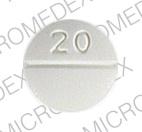Methylin and Alcohol/Food Interactions
There are 4 alcohol/food/lifestyle interactions with Methylin (methylphenidate).
Methylphenidate Food
Moderate Food Interaction
GENERALLY AVOID: Alcohol may exacerbate the adverse central nervous system effects of psychoactive drugs, including methylphenidate.
GENERALLY AVOID: Consumption of alcohol while taking certain sustained-release formulations of methylphenidate may cause rapid release of the drug, resulting in increased systemic levels of methylphenidate. In vitro studies have been conducted using Metadate CD 60 mg and Ritalin LA 40 mg capsules, as well as Concerta 18 mg tablet. At an alcohol concentration of 40%, an increase in the release rate of methylphenidate was observed in the first hour for Metadate CD and Ritalin LA, resulting in 84% and 98% of the methylphenidate being released, respectively. In contrast, there was no increased release of methylphenidate in the first hour for Concerta. These results are considered to be representative of the other available strengths of the corresponding product.
MANAGEMENT: Patients treated with methylphenidate should be advised to avoid alcohol or medications that contain alcohol.
References (3)
- (2022) "Product Information. Metadate CD (methylphenidate)." Celltech Pharmaceuticals Inc
- (2002) "Product Information. Concerta (methylphenidate)." Alza
- (2013) "Product Information. Ritalin LA (methylphenidate)." Quality Care Products/Lake Erie Medical
Switch to consumer interaction data
Methylphenidate High Blood Pressure (Hypertension)
Major Potential Hazard, Moderate plausibility
CNS stimulants - cardiac disease
Many CNS stimulants are contraindicated in patients with significant cardiovascular impairment such as uncompensated heart failure, severe coronary disease, severe hypertension (including that associated with hyperthyroidism or pheochromocytoma), cardiac structural abnormalities, serious arrhythmias, etc. Sudden death has been reported in patients with structural cardiac abnormalities or other serious cardiac disease who are treated with CNS stimulants at the recommended dosages for attention deficit hyperactivity disorder; use of these agents should be avoided in patients with known structural cardiac abnormalities, cardiomyopathy, serious cardiac arrhythmia, coronary artery disease, or other serious cardiac disease. Additionally, stroke, myocardial infarction, chest pain, syncope, arrhythmias, and other symptoms have been reported in adults under treatment. A careful assessment of the cardiovascular status should be done in patients being considered for treatment. This includes family history, physical exam, and further cardiac evaluation (EKG and echocardiogram). Patients who develop symptoms should have a detailed cardiac evaluation and if needed, treatment should be suspended.
References (12)
- (2001) "Product Information. Dopram (doxapram)." West Ward Pharmaceutical Corporation
- (2001) "Product Information. Dexedrine (dextroamphetamine)." SmithKline Beecham
- (2001) "Product Information. Didrex (benzphetamine)." Pharmacia and Upjohn
- (2001) "Product Information. Tenuate (diethylpropion)." Aventis Pharmaceuticals
- (2001) "Product Information. Focalin (dexmethylphenidate)." Mikart Inc
- (2002) "Product Information. Concerta (methylphenidate)." Alza
- (2002) "Product Information. Strattera (atomoxetine)." Lilly, Eli and Company
- (2007) "Product Information. Vyvanse (lisdexamfetamine)." Shire US Inc
- (2007) "Product Information. Nuvigil (armodafinil)." Cephalon Inc
- (2012) "Product Information. Phendimetrazine Tartrate SR (phendimetrazine)." Sandoz Inc
- (2019) "Product Information. Phentermine Hydrochloride (phentermine)." Tagi Pharma Inc
- (2023) "Product Information. Desoxyn (methamphetamine)." Recordati Rare Diseases Inc, SUPPL-38
Methylphenidate High Blood Pressure (Hypertension)
Major Potential Hazard, Moderate plausibility
CNS stimulants - hypertension
CNS stimulants increase blood pressure and heart rate; the use of some agents may be contraindicated in patients with severe/uncontrolled hypertension. Caution should be used when administering to patients with preexisting high blood pressure (even mild hypertension) and other cardiovascular conditions. All patients under treatment should be regularly monitored for potential tachycardia and hypertension.
References (13)
- (2001) "Product Information. Dopram (doxapram)." West Ward Pharmaceutical Corporation
- (2001) "Product Information. Dexedrine (dextroamphetamine)." SmithKline Beecham
- (2001) "Product Information. Didrex (benzphetamine)." Pharmacia and Upjohn
- (2001) "Product Information. Tenuate (diethylpropion)." Aventis Pharmaceuticals
- (2001) "Product Information. Focalin (dexmethylphenidate)." Mikart Inc
- (2002) "Product Information. Concerta (methylphenidate)." Alza
- (2002) "Product Information. Strattera (atomoxetine)." Lilly, Eli and Company
- (2007) "Product Information. Vyvanse (lisdexamfetamine)." Shire US Inc
- (2007) "Product Information. Nuvigil (armodafinil)." Cephalon Inc
- (2012) "Product Information. Phendimetrazine Tartrate SR (phendimetrazine)." Sandoz Inc
- (2019) "Product Information. Phentermine Hydrochloride (phentermine)." Tagi Pharma Inc
- (2023) "Product Information. Desoxyn (methamphetamine)." Recordati Rare Diseases Inc, SUPPL-38
- (2024) "Product Information. Modafinil (modafinil)." Heritage Pharmaceuticals Inc
Methylphenidate High Blood Pressure (Hypertension)
Major Potential Hazard, High plausibility
methylphenidate - hypertension
Methylphenidate (racemic) and dexmethylphenidate (the more pharmacologically active d-enantiomer) exhibit sympathomimetic activity and may elevate blood pressure and pulse rate. Therapy with these agents should be administered cautiously in patients with hypertension. Blood pressure should be monitored periodically during therapy.
References (2)
- (2001) "Product Information. Ritalin (methylphenidate)." Novartis Pharmaceuticals
- (2001) "Product Information. Focalin (dexmethylphenidate)." Mikart Inc
Switch to consumer interaction data
Methylin drug interactions
There are 207 drug interactions with Methylin (methylphenidate).
Methylin disease interactions
There are 14 disease interactions with Methylin (methylphenidate) which include:
- agitation
- cardiac disease
- glaucoma
- hypertension
- psychiatric disorders
- substance abuse
- tics
- hypertension
- seizures disorders
- liver disease
- renal dysfunction
- seizure disorders
- hematologic toxicity
- GI narrowing
More about Methylin (methylphenidate)
- Methylin consumer information
- Check interactions
- Compare alternatives
- Pricing & coupons
- Reviews (20)
- Drug images
- Latest FDA alerts (4)
- Side effects
- Dosage information
- During pregnancy
- Generic availability
- Drug class: CNS stimulants
- Breastfeeding
- En español
Related treatment guides
Drug Interaction Classification
| Highly clinically significant. Avoid combinations; the risk of the interaction outweighs the benefit. | |
| Moderately clinically significant. Usually avoid combinations; use it only under special circumstances. | |
| Minimally clinically significant. Minimize risk; assess risk and consider an alternative drug, take steps to circumvent the interaction risk and/or institute a monitoring plan. | |
| No interaction information available. |
Further information
Always consult your healthcare provider to ensure the information displayed on this page applies to your personal circumstances.


